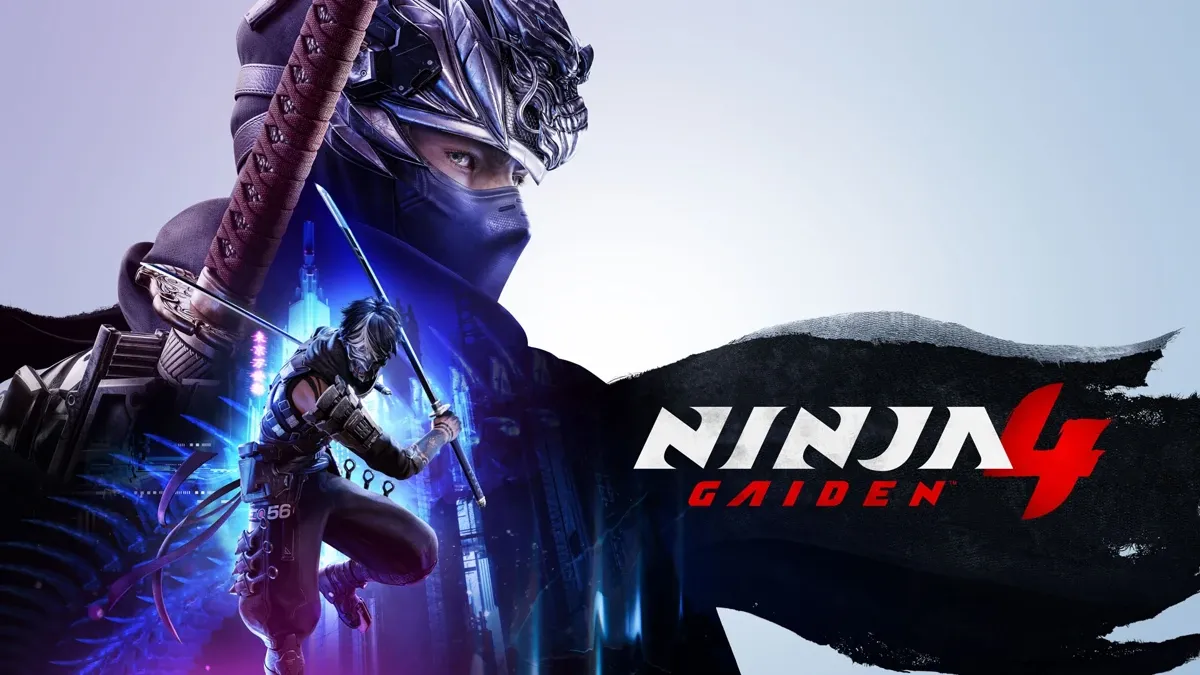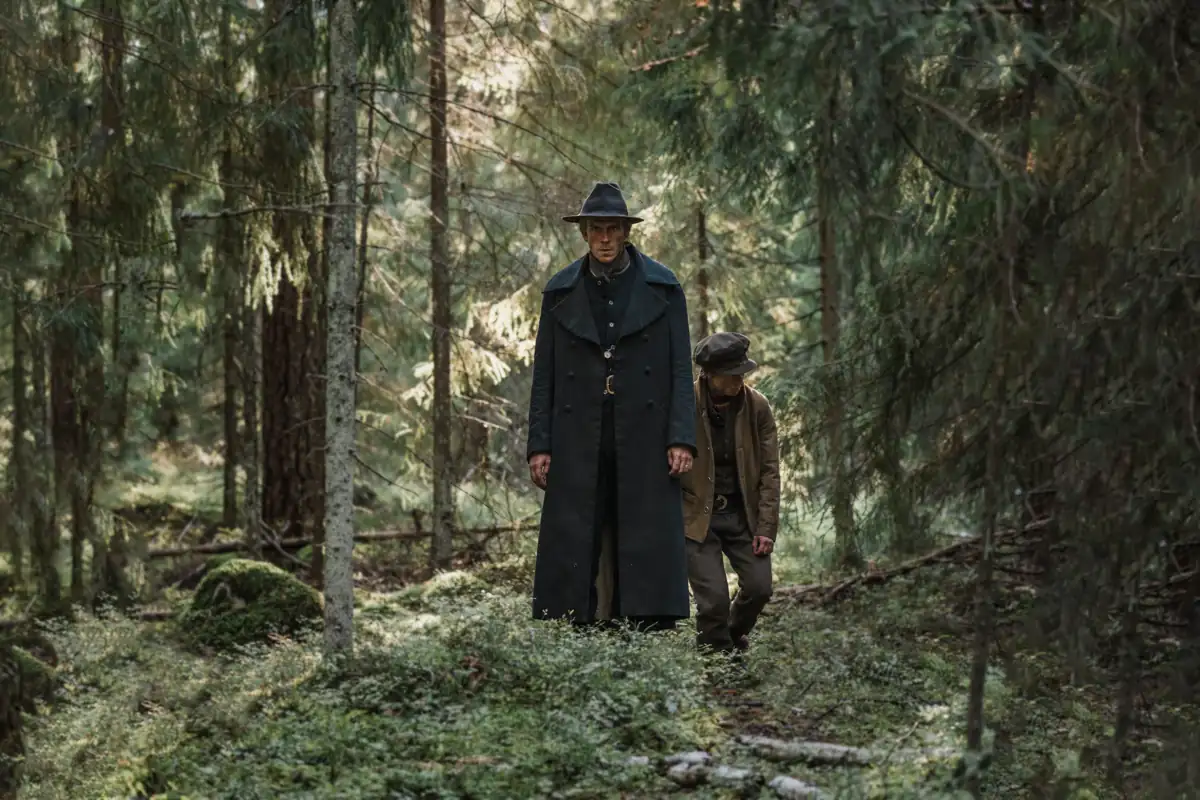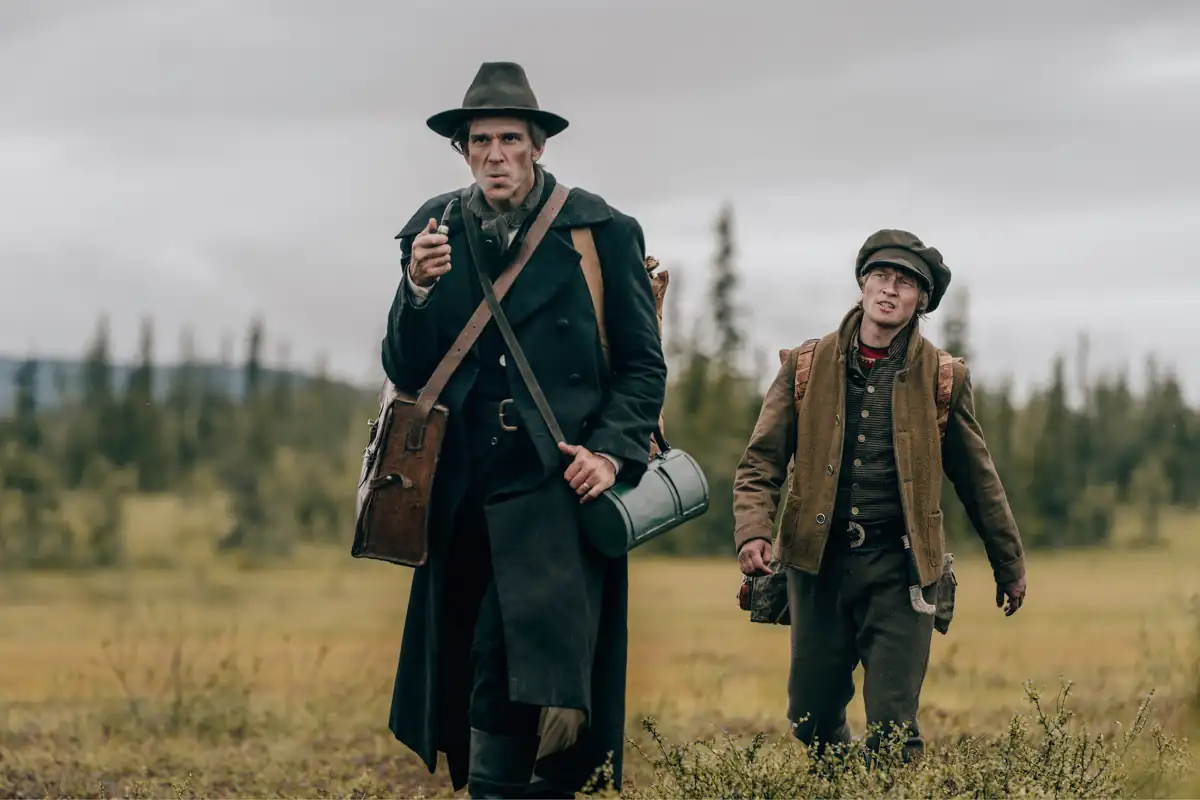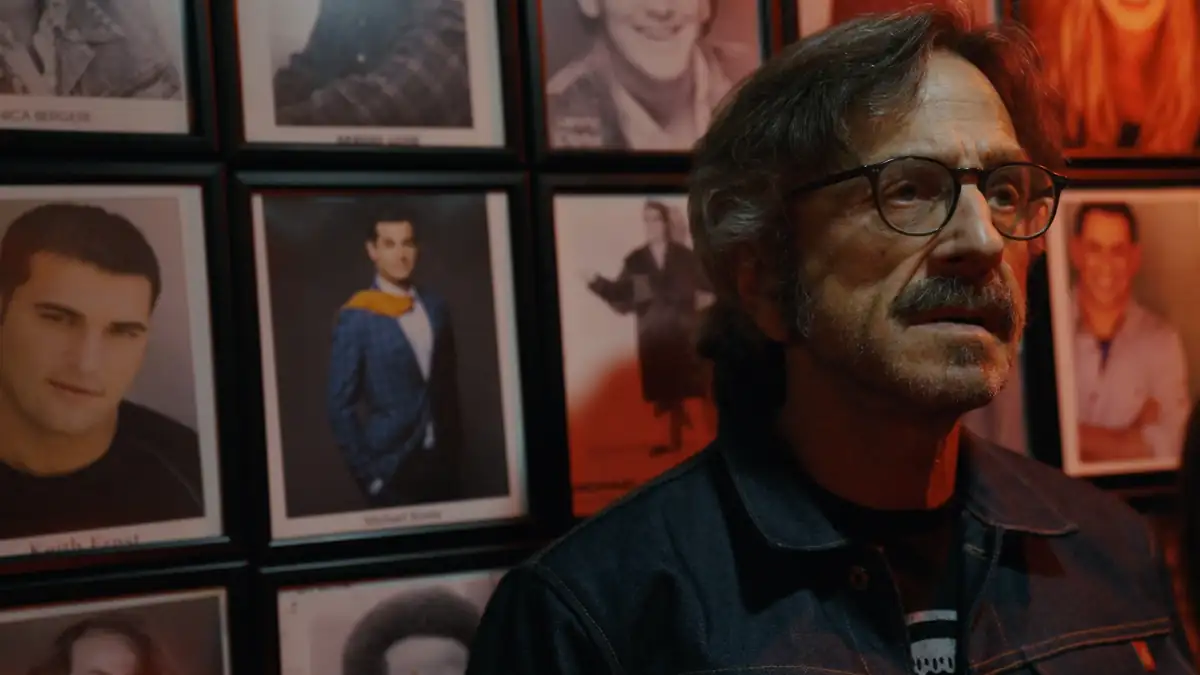I had the immense pleasure to interview the cast and crew of The Expanse, one of my favorite series of all time. While our time was limited, we spoke of everything that’s happened to the crew of The Rocinante, the places where the finale takes them, and if there’s a future for this ragtag family in the far reaches of space.
This interview has been edited and condensed for clarity.
Where do we find the crew of the Rocinante at the beginning of season six?
Steven Strait: Exhausted. In the beginning, our morale is really low. They’ve been slogging away without any real movement with what they’re trying to accomplish, and it’s getting really hard.
Dominique Tipper: Naomi has severe PTSD, and she is struggling with the moral ramifications of her part in Alex’s death, she’s devastated over it, and this introduction of Clarissa on the ship punches extra holes in them all. Especially Naomi and Holden, who aren’t happy with it.
Cara Gee: Drummer has been so isolated for so long, and we’ve seen the consequences of her choices as she’s losing friends and family. She’s grappling with the sense of hopelessness coming from that void.
Wes Chatham: Amos is finally starting to become a fully formed human being. And a big part of that is becoming a mentor to Peaches. It’s such a great experience for him because he has to be there for her in ways that people were for him.
Nadine Nicole: Clarissa really doesn’t have the confidence to do anything without Amos, coming into season six. She’s really trying to find her place, and he’s giving her the strength to try and befriend the Rocinante crew.
“Holden has grown as a leader. He’s at a place where he can make choices that he wouldn’t have otherwise without going through all that he has.”
– Steven Strait
The previous season is about Naomi trying to save her son, and in this season, one of the major arcs is her coming to terms with the fact that he’s too far gone – that she has to let him go in the worst way possible.
Tipper: Right! How do you deal with something like that? She’s lashing out with Clarissa probably getting the brunt of it because she’s an easy target, but everyone is getting their share. Even Amos.
It’s especially tough in the beginning with her and Holden. She’s finding it hard to cope and come to terms with that, even as she’s doing her best. It’s thorny, for want of a better word.
A big part of the conversation throughout the years in The Expanse is found family vs. biological family, and I think it really pays off here with Amos and Peaches.
Nicole: I think Peaches being OK with being alone, and the others initially not accepting her the same way as Amos does, is something that helps her. She’s there to keep her head down and follow in his footsteps. He gives her confidence in that. I think the scenes in which that really come through are the ones with Holden and Naomi, where she starts to get a good headwind with them.
Chatham: This also really goes back to Amos’s major arc from the previous seasons. When you first meet him, he’s so severely traumatized by his childhood that he isn’t a complete human. Then in season three, we compare him with Pinocchio, and how similar they are. But he’s finally getting there.
On the flip side of things is Marco, who can go from intensely charming to horrifying in seconds – but entirely someone who you can understand as a hero and freedom fighter in the eyes of others.
Keon Alexander: I think there’s this soil out of which he has grown; the injustices, the pain, the trauma that we inflict on those that are forgotten by society and our economies and the political policies that ignore them. Out of that can grow a human who can achieve greatness, but they’ve always emerged from that same soil. He spends so much time in self-instruction, in self-betterment, but he’s always coming from that place that feeds his fears. On a psychological level, that’s always driving him.
“Marco has grown from a soil of injustice, pain, and trauma inflicted on those forgotten by society.” – Keon Alexander
This leads to the third leader in the series, Avasarala, who finds herself notably changed throughout the years.
Shohreh Aghdashloo: It’s aging! She’s gaining more experience and know-how, wisdom, you name it; everything that comes with age. More than before, she’s involved in things, not just as a politician, but as someone who is with the people who have suffered this war.
Therefore, the ideas she’s had in the past, the more idealistic, not realistic ones, they’re gone. She’s realizing the world has changed, and she needs to change with them according to what’s happening now. And when you age, you become softer, and you feel more for humanity and the people.
And this amazing woman, who’s been fighting for mother earth, she too is growing up, trying to find new ways to negotiate and ask for a peaceful way – anything but war. There’s an interesting part where she says: ‘we won’t go to fight this war when there are women and children, innocent people, on this planet,’ and I thought, ‘is this Avarsarala?’ and yes, it is – it is the wounded Avasarala. It’s the person who is now one of the people, not just a politician. They’re no longer her subjects, they’re her friends and family.
This is also the season where all these traits we’ve seen are finally building up to a clash with one another. Drummer is finally meeting Avasarala in person, Holden has to make more far-reaching decisions than before, and Marco reveals who he is as a leader.
Strait: I think Holden has always had an ethical core that he’s held on to, whether his decisions have been right or wrong, he’s always tried to do the right thing.
By the end, he’s found who he is as a leader, and I think he finally makes some mature and wise decisions by the end that he certainly wouldn’t have been able to make otherwise if he hadn’t gone through what he had before.
He’s flawed, always, and the struggle within him to do the right thing despite these tough, and morally questionable, philosophical circumstances. I think the doubt is always there, but he tries to do his best.
Alexander: Marco has been able to rise so high, and this is in the books as well, by taking the self-awareness that he has to be able to craft himself. He’s coming from this particular place that feeds his fears, insecurities, and deepest desires that haven’t come true. What happens in season six is we finally get a glimpse of what makes him tick. As things get harder for him in administering the empire, you see the cracks, you see what’s underneath.
Gee: In meeting Avasarala, I remember how Drummer has a line in an earlier season that still rings true: “all the optimists I know are dead.” She’s lost so much that any potential solutions she sees don’t feel satisfying. There’s no way out for her that feels right.
Avasarala loves her life, she loves her profession, that’s why she puts her boots on and works fourteen hours on the ground – but she’s coming to that age where she wonders ‘did I do the right thing, am I doing the right thing?’ – Shohreh Agdashloo
It’s interesting to see that Avasarala then, who used to be so ruthless, now finds herself wondering about the things she once thought she hated.
Aghdashloo: I love her scene in zero gravity so much. What she’s saying tells me of her duality. What’s going on in her mind? She’s starting to understand both sensations. I think in the last season, she was a bit bewildered and wondered what is the right path to take. But she’s more comfortable now, but she’s uncertain if she enjoys that comfort.
And Avasarala, like myself and many women like us, the child within her is still alive. That’s why she can only sleep three or four hours a night, put on her boots, and work for fourteen hours because she loves where she’s at. She loves her profession; she loves where she’s at. But at the same time, she’s come to that age where she wonders “did I do the right thing, am I doing the right thing?” Because no matter what, when you age, you become softer.
Then, at the center of it all, is Holden trying to shoulder all these burdens and play it idealistic and pure in the face of it all.
Strait: This show has afforded me, as an actor, an incredible picture of showing the evolution of a natural leader who can shoulder that kind of responsibility, learning it all through stumbles and failures over the years.
A lot of these long threads are thanks to really all the meticulous planning. Was there difficulty in finding the right way to adapt this material, or did that come naturally?
Ty Franck: I don’t know if there was difficulty in translation, but there was the trick – and Naren was really supportive of this since the beginning – is getting everyone to understand that some of the pieces that show up in the beginning, which seem innocuous, become vitally important later. We really needed to keep that meticulous plotting from early on, especially when we were using those elements. To his credit, when Naren would talk about condensing or changing something, Daniel or I would say “that’s really important later” and he’d always listen.
Naren Shankar: I think what happened was also there’s an interesting amount of character arcs folding into one another. Like Drummer, who, on the show, is a combination of Bull and Michio from the books. Given the course of the series, you can make an individual character richer by doing something like that, which allows the audience to connect to them more deeply, than by switching perspectives to other characters like in a novel.
Franck: In a book, a cast of thousands really costs nothing.
It also helps to have someone as remarkable as Cara Gee playing Drummer.
All in unison: Yes! Absolutely. That really did not hurt.
Shankar: We loved her so much that we wanted to make more of it, and that’s what you’re seeing in the show.
Were there natural endpoints before, as you neared previous cancellations?
Shankar: There were two places, actually. The first was when we were at SyFy, and we were very much on the bubble. We constructed the end of season 3 with a kind of open-ended question, in the opening of the rings, that could have been an ending. Luckily, Amazon came around and saved us for another three seasons. And then there’s now season six, which is another ending of sorts.
I’m selfish and don’t think this is the end. What I’m hearing is that we really need to harass Netflix for three more seasons.
Daniel Abraham: [Laughs] Well, I’m not going to tell you to do that!
Chatham: If we’d get more of the story, in this hypothetical world, I think it would be important to live up to the full potential of the books. I’d want to do that same process for the last trilogy as we’ve done so far. I don’t think there’s any other way to go with it. You go big or don’t do it at all.
The final episode of The Expanse Season 6 airs tomorrow, January 14th.












